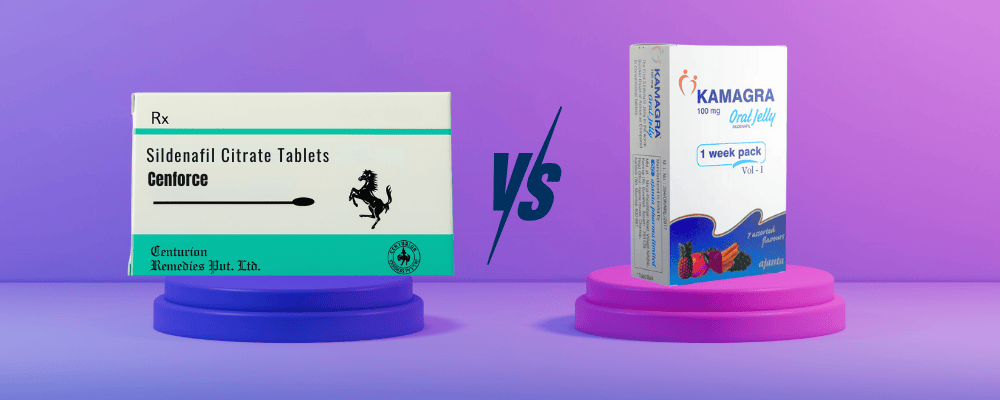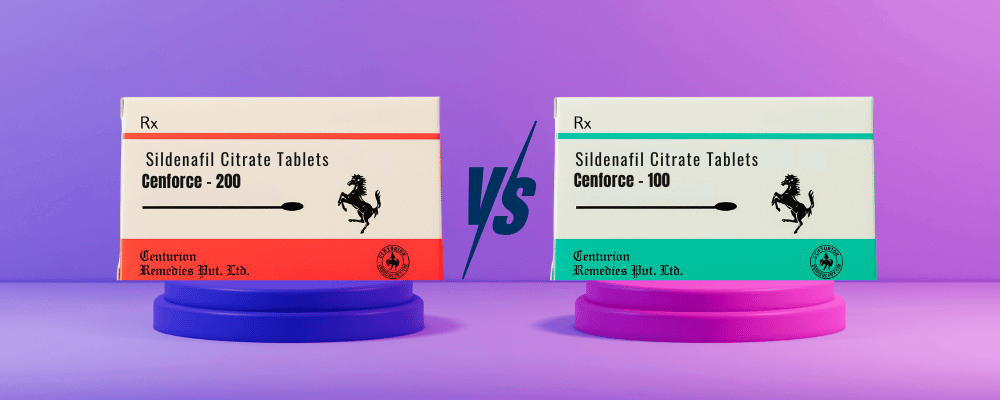Premature ejaculation (PE) is the most common sexual problem in men, affecting about 20-30% men worldwide. It can impact relationships, causing stress for the man and his partner, but understanding its symptoms, causes, dosage, and treatments may help a person suffering from PE.
You may feel self-conscious if you have experienced Premature ejaculation, but you’re not alone. Studies show that PE is the most common sexual complaint among men. There are various treatment options for premature ejaculation. To find the best one for you, it’s essential to understand the cause and possible treatments.
What is Premature ejaculation?
Premature ejaculation is the inability to control or delay ejaculation for more than a minute after sexual intercourse. Premature ejaculation is when a man ejaculates sooner than he would want during sexual activity. It can happen in all sexual activities. In the United States, about 1 in 3 men aged between 18 and 60 years are suffering from PE. Sometimes, Erectile Dysfunction (ED) & Premature Ejaculation (PE) are interlinked with each other.
ED is when men are not able to maintain an erection that is sufficient for sex. After ejaculation, an erection goes away, making it challenging to know if the issue is PE or ED. It’s recommended to treat ED first, as PE may not be a problem once ED is managed.
Symptoms of Premature Ejaculation
The American Urological Association has set criteria to diagnose Premature Ejaculation. These criteria include:
- Premature ejaculation is characterized by ejaculating in 2 minutes or less
- It involves the inability to delay ejaculation
- A shorter time than previously experienced.
- It often leads to emotional distress and anxiety.
These elements can crucially affect a person’s quality of life and sexual well-being. Several researchers have noted that about 80-90% of men with lifelong PE ejaculate within 60 seconds, and the remaining within 2 minutes.
How Does Ejaculation Work?
Ejaculation is the process run by the nervous system, and it is a sudden pleasurable release of fluid or semen through the penis. Hormones and an individual’s feelings influence this process. When you are sexually aroused or come to a certain level of excitement, your brain sends signals to your reproductive organs to ejaculate.
Ejaculation occurs in two phases: emission and expulsion.
What causes premature ejaculation?
The exact cause of PE is unknown, but there are many reasons a man may have it.
Serotonin and PE
The nervous system produces a natural substance called Serotonin. It helps control sexual desire, emotion, and mood. High levels of serotonin in the brain can help to increase the time to ejaculation. At the same time, low amounts can shorten the time to ejaculation and lead to PE.
Psychological causes
Psychological, or mental health, issues can be involved with PE and may include:
- Anxiety & Depression: Mental health conditions play a key role in causing early ejaculation. Anxiety of sexual failure or conflicting emotions leads to PE.
- Stress: A High level of stress can lead to earlier ejaculation.
- Performance stress: Performance anxiety or pressure felt by partners during intercourse, and expectation or concern about satisfying a partner, can lead to the onset of PE
- Arousability: Sometimes, individuals with high arousability ejaculate rapidly.
- Alcohol misuse: A High level of alcohol consumption can cause ED and PE
- Relationship issues: If you feel uncomfortable or lose connection with your partners cause to stress, anger, and hurt, which can worsen PE
- Past abuse: If someone faced trauma from sexual abuse, it may lead to mental issues and contribute to PE
- Lack of Confidence: If a person has a lack of performance confidence or a negative body image, it may lead to PE
- Personality Disorder: Various personality disorders, such as obsessive-compulsive personality traits and anxiety, may lead to PE
Physical causes
- Nerve damage: Spinal cord injuries or multiple sclerosis, such conditions, lead to PE.
- Less Serotonin amount: A Low level of serotonin substance in the body may cause lifelong PE
- Medical conditions: people who are suffering from conditions like diabetes, thyroid, or other health issues can lead to PE
- Sensitive penis: A High level of sensitivity of the penis can cause early ejaculation
- Urologic issues: Conditions such as inflammation of the prostate or abnormality in ejaculation can lead to PE
Other Issues
- PE and aging: PE can occur at any age & is not directly caused by aging. Yet, ED can become more common with age, which may be due to lower testosterone levels. In older men, erections are less firm or don’t last as long. The feeling and sensation before ejaculation might also be shorter, leading to earlier ejaculation.
- PE and your partner: PE can harm your relationship with your partner, leading to a loss of connection and feelings of shame, hurt, and anger. PE can also affect your sexual partner. Exercise techniques, sex therapy, counseling, and ED or PE drugs may be helpful for you and your relationship. It’s best to learn to relax, as intercourse anxiety can worsen PE.
Drug induced
Sometimes Premature ejaculation can be caused by drugs like cocaine, dopaminergic, and amphetamine that unbalance the dopamine levels.
Classification of Premature Ejaculation
PE can be classified into four major types:
- Primary or life-long PE: Ejaculation latency time (IELT) less than 1 minute since first intercourse.
- Secondary or acquired PE: IELT less than 3 minutes.
- Natural variable PE: Ejaculation occurs within a wide period.
- Subjective PE: Lack of ejaculation control.
Treatments for premature ejaculation
There are many medications and non-medication treatments available to treat premature ejaculation. These include:
Medically Therapy
There are several drugs, creams, and sprays available that control early ejaculation in men with PE.
Medication for Premature Ejaculation.
Phosphodiesterase 5 inhibitors (PDE5Is): Medications like Sildenafil and Vardenafil are the best medications to treat Premature ejaculation.
- Topical anesthesia medicine: It helps to delay ejaculation, and it helps in reducing penile sensitivity. Medications such as Anesthesia, Lidocaine & Prilocaine Cream, and Lignocaine Lidocaine 2% Gel help delay PE.
- Dapoxetine: Dapoxetine is a vital molecule to treat premature ejaculation PE and Dapoxetine is a potent selective serotonin reuptake inhibitor (SSRI) specifically developed to treat PE. Its effects can last up to 24 hours.
Here are some Techniques to treat Premature ejaculation:
- Stop-start technique: Introduced by Semans in 1956. In this technique, you revive the penis until right before ejaculation, then stop the feeling of arousal until the feeling of ejaculation is gone.
- Squeeze technique: In the squeeze technique, you have to apply slight pressure on the head of the penis; this helps to decrease the level of arousal for a short time and helps prevent premature ejaculation.
Premature Ejaculation and Erectile Dysfunction (ED)
ED and PE are the most common problems that affect 30 million men in the United States, which can affect a person’s sexual performance. Studies say that PE and ED are interlinked; 30-60% people who are suffering from ED also have PE.
Can Viagra treat premature ejaculation?
Sometimes ED treatment can help prevent PE. Drugs like Vardenafil, Sildenafil, and Dapoxetine may provide some benefits to persons who are facing premature ejaculation. However, Viagra could be more beneficial for PE when there is ED, which is also a problem for a person.
A combination of both treatments may be much better to treat Premature ejaculation. After taking drugs like Sildenafil, people experience better intercourse with harder erections and gain self-confidence, and boost their sexual satisfaction.
Conclusion
Premature ejaculation (PE) is a common sexual issue that causes distress for both the patient and their partner. Its underlying mechanisms are complex, and diagnosis is primarily clinical. For years, behavioral techniques and psychotherapy have been the primary treatments. Additionally, topical anesthetic creams, TCAs, SSRIs, tramadol, alpha-1 adrenoceptor antagonists, and PDE-5 inhibitors have been commonly used. The development of newer medications, such as Dapoxetine, shows promise for the management of PE.
References:
https://www.medicalnewstoday.com/
https://www.ncbi.nlm.nih.gov/






